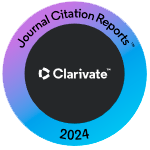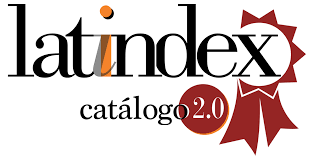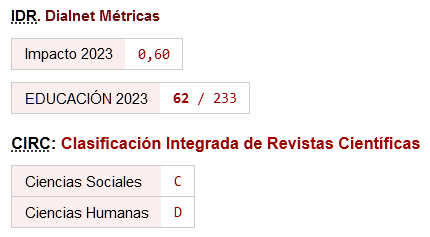Training of university teachers in ICT and disability. The case of the University of Seville
DOI:
https://doi.org/10.46661/ijeri.6168Keywords:
Special education, higher education, information technology, disability, teaching and trainingAbstract
The presence of students with special educational needs in Spanish universities has increased considerably in recent decades, making it necessary to train teaching staff in certain areas. The main objective of the study is to find out the perceptions of those responsible for technology and training in university higher education centres in Seville city and province, more specifically, on the knowledge of university teaching staff in relation to Information and Communication Technologies (ICT), as a support for students with disabilities. A qualitative methodology was used, with semi-structured interviews as the main instrument for collecting information. The study sample consisted of a total of 10 experts in the field of disability and technology. In terms of the conclusions of the present study, the lack of awareness of the subject and the lack of time available to teachers are notable. As for the main barriers, there is also a lack of technological training available to them when it comes to applying ICT as a support for students with disabilities.
Downloads
References
Ari, I.A. e Inan, F.A. (2010). Assistive technologies for students with disabilities: A survey of access and use in Turkish universities. Turkish Online Journal of Educational Technology, 9(2), 40-45. Retrieved from http://www.tojet.net/articles/v9i2/925.pdf
Cabero, J., Córdoba, M.; y Fernández, J. M. (coord.) (2007). Las TIC para la igualdad. Nuevas tecnologías y atención a la diversidad. Eduforma.
Clouder, L., Cawston, J., Wimpenny, K., Mehanna, A.K.A., Hdouch, Raissouni, I., y Selmaoui, K. (2019). The role of assistive technology in renegotiating the inclusion of students with disabilities in higher education in North Africa. Studies in Higher Education, 44(8), 1344-1357. https://doi.org/10.1080/03075079.2018.1437721
Córdoba, M. Cabero, J. y Soto, F.J. (2012). Buenas prácticas de aplicación de las TIC para la igualdad. Eduforma.
Fernández-Batanero, J. M., Cabero, J. y López-Meneses, E. (2019). Knowledge and Degree of Training of Primary Education Teachers in Relation to ICT Taught to Students With Disabilities. British journal of educational technology. 50(4), 1961-1978. https://doi.org/10.1111/bjet.12675
Fernández-Batanero, J.M. (2017). Investigation on ICT applied to people with disabilities. Initial training of Primary Education teachers. IJERI: International Journal of Educational Research and Innovation, 9, 251–264. Retrieved from https://www.upo.es/revistas/index.php/IJERI/article/view/2788
Fernández, J.M., Reyes, M. y El Homrani, Mohammed (2018). TIC y discapacidad. Principales barreras para la formación del profesorado. Revista de Educación Mediática y TIC, 7(1), 1-25. https://doi.org/10.21071/edmetic.v7i1.9656
Fernández-Batanero, J. M, Román-Graván, P. y El Homrani, M. (2017). TIC y discapacidad. Conocimiento del profesorado de educación primaria en Andalucía. Aula abierta, 46, 65-72. https://doi.org/10.17811/rifie.46.2.2017.65-72
Hernández-Sampieri, R., Fernández-Collado, C, y Baptista, P. (2010). Metodología de investigación. Mc Graw Hill.
López-Meneses, E., & Fernández-Cerero, J. (2020). Information and Communication Technologies and functional diversity: knowledge and training of teachers in Navarra. IJERI: International Journal of Educational Research and Innovation, 14, 59–75. https://doi.org/10.46661/ijeri.4407
Lueder, R., & Berg Rice, V. J. (2007). Ergonomics for Children: Designing products and places for toddler to teens. CRC Press.
Marín-Díaz, V. (2018). Las TIC inclusivas o la inclusividad de las TIC. Revista de educación mediática y TIC, 7(1), 1. https://doi.org/10.21071/edmetic.v7i1.10515
OMS. (2001). International Classification of Functioning, Disability and Health. Ginebra: Organización Mundial de la Salud.
Ortiz, A. y otros (2014). Formación en TIC de futuros maestros desde el análisis de la práctica en la Universidad de Jaén. Pixel-Bit.Revista de Medios y Educación, 44, 127-142. https://doi.org/10.12795/pixelbit.2014.i44.09
Pegalajar Palomino, M. C. (2017). El futuro docente ante el uso de las TIC para la educación inclusiva. Digital Education Review, 31, 131-148. https://doi.org/10.1344/der.2017.31.131-148
Rangel, P. y Peñalosa, E. (2013). Alfabetización digital en docentes de educación superior: construcción y prueba empírica de un instrumento de evaluación. Pixel-Bit. Revista de Medios y Educación, 43, 9-23. https://doi.org/10.12795/pixelbit.2013.i43.01
Román-Graván, P.; Bersabé-Granado, L. y Siles-Rojas, C. (2020). La formación docente universitaria en TIC sobre diversidad funcional cognitiva. En Trujillo Torres, J.M.; Alonso García, S.; Campos Soto, M.N. y Sola Reche, J.M., Análisis sobre metodologías activas y TIC para la enseñanza y el aprendizaje. Dykinson. Pp. 524-532.
Romañach, J. y Lobato, M. (2009). Diversidad funcional, nuevo término para la lucha por la dignidad en la diversidad del ser humano, Foro de Vida Independiente. Retrieved from http://forovidaindependiente.org/diversidad-funcional-nuevo-termino-para-la-lucha-por-la-dignidad-en-la-diversidad-del-ser-humano/
Rosario, H. y Vásquez, L. (2012). Formación del docente universitario en el uso de tic. Caso de las universidades públicas y privadas. (U. de Carabobo y U. Metropolitana). Pixel-Bit. Revista de Medios y Educación, 41, 163-171. Retreived from https://recyt.fecyt.es/index.php/pixel/article/view/61597
Siles-Rojas, C.; Perea-Rodríguez, E. y Román-Graván, P. (2020). Diseño de una intervención para la inclusión de alumnado con trastorno del espectro autista mediante la robótica educativa. En Trujillo Torres, J.M.; Alonso García, S.; Campos Soto, M.N. y Sola Reche, J.M., Análisis sobre metodologías activas y TIC para la enseñanza y el aprendizaje. Dykinson. Pp. 533-543.
Suriá-Martínez, R (2011). Percepción del profesorado sobre su capacitación en el uso de las TIC como instrumento de apoyo para la integración del alumnado con discapacidad. Profesorado, 15, 299-314. Retrieved from https://rua.ua.es/dspace/bitstream/10045/25925/1/2011_Suria_Profesorado.pdf
Suriá, R., Martínez, D. y Ordoñez, T. (2014). TIC, docencia y discapacidad: ¿se sienten preparados los docentes para apoyar al alumnado discapacitado en el uso de las TIC en las aulas? en "25 años de integración escolar en España. Tecnología e inclusión en el ámbito educativo, laboral y comunitario", Murcia, Consejería de Educación, Formación y Empleo, 1–5.
Terigi, F. (2013). VIII Foro Latinoamericano de Educación: saberes docentes: qué debe saber un docente y por qué. Santillana.
Troncoso, A. B., Martínez, M. E. & Raposo, M. (2013). La inclusión del alumno con discapacidad intelectual a partir del uso de blogs: una experiencia educativa innovadora. Revista Latinoamericana de Inclusión Educativa, 7(2), 195-211. Retrieved from http://www.rinace.net/rlei/numeros/vol7-num2/art11.pdf
Downloads
Published
How to Cite
Issue
Section
License
Copyright (c) 2022 Pedro Román-Graván, José Fernández-Cerero

This work is licensed under a Creative Commons Attribution-NonCommercial-NoDerivatives 4.0 International License.












